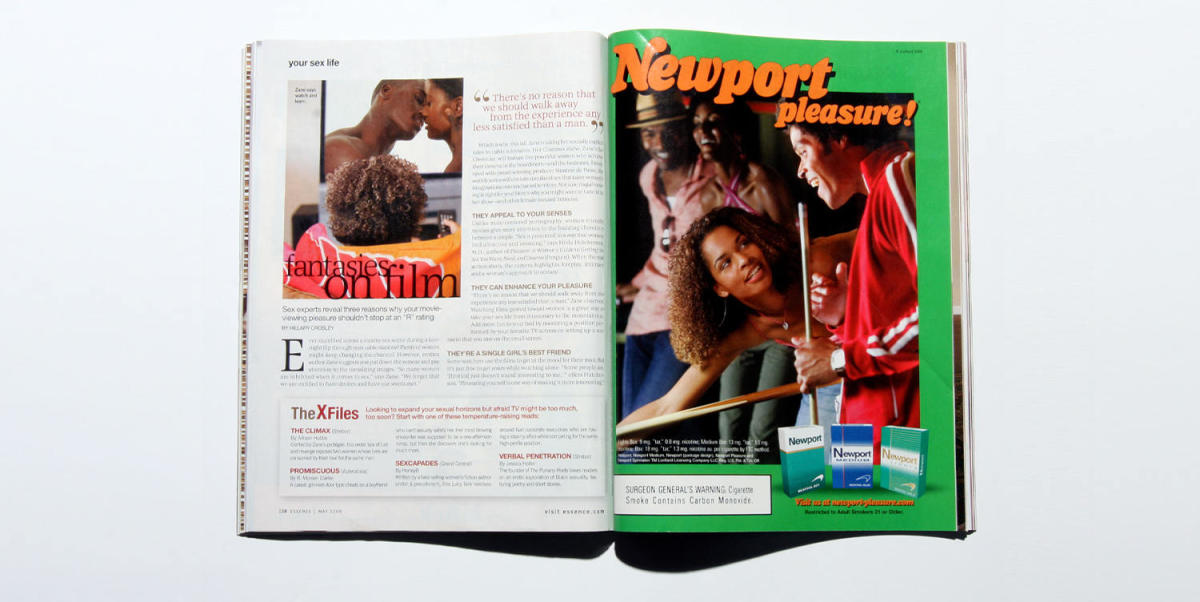Biden Administration Urges Black Smokers To Quit Menthol and Flavored Cigars
As reports surface, indicating that the Biden administration is leaning towards banning menthol cigarettes and flavored cigars, key health organizations are rallying to notify Black smokers that help is available if they want to quit.
A staggering 85% of menthol smokers in the U.S. are Black individuals, as per data from the Campaign for Tobacco-Free Kids. In 2020, almost 81% of Black smokers consumed menthol cigarettes while only 34% of white smokers did, reports the Centers for Disease Control and Prevention. A result from decades of targeted advertising from the tobacco industry directed at Black communities, states Carol McGruder, co-chair of the African American Tobacco Control Leadership Council, a dedicated anti-tobacco public health and advocacy group.
Comparatively, kicking a menthol cigarette habit is much more challenging due to its higher addictiveness than regular cigarettes, statistics from the CDC reveal. However, quit-smoking programs across the country are underutilized, with Jennifer Folkenroth, the American Lung Association’s national senior director of tobacco programs, explaining that many smokers attempt to quit independently with minimal to no counseling.
Acknowledging the urgency in providing the Black community with support to stop smoking, Folkenroth emphasizes the need for trained and certified facilitators in Black communities, such as churches, to aid those looking to quit.
This endeavor is crucial, as more than 45,000 Black individuals lose their lives to smoking annually, reports the Campaign for Tobacco-Free Kids. This tragic loss also destabilizes families, churches, and communities, highlights McGruder.
So, what makes menthol cigarettes more addicting than regular ones? According to Sven-Eric Jordt, an associate professor at the Duke University School of Medicine, the mint flavor of menthol gives it a cooling effect that suppresses coughing and makes tobacco smoke less harsh on the throat. This effect makes it simpler to inhale, plus the mint flavor acts as a strong behavioral cue, leading to increased cravings.
At the core of these concerns rests the fact that menthol flavoring intensifies the effects of nicotine on the brain, as well as its dependency. This discovery means it’s more challenging to quit smoking menthols.
As these obstacles become clear, smokers like Millie Martinez and Shireat Nelson have emerged as inspirations for those trying to quit menthol cigarettes. Martinez began smoking menthol cigarettes at 15 and embarked on her journey to quit for her infant grandson, ultimately finding success with an online cessation program. On the other hand, Nelson became a menthol smoker at 14 and managed to quit with the help of the American Lung Association’s support groups.
While decades-long issues make it tricky to quit menthol cigarettes, the methods to achieve cessation remain consistent. Both Amanda Graham, chief of innovations from Truth Initiative, and the American Lung Association suggest a combination of higher doses of nicotine replacements, such as patches and gums, paired with social support for optimal effectiveness.
It’s clearer than ever that support, guidance, and properly directed resources are essential for Black smokers who decide to quit menthol cigarettes. With systemic change, driven by health organizations, these smokers can turn their journeys to freedom from smoking into a success story.


